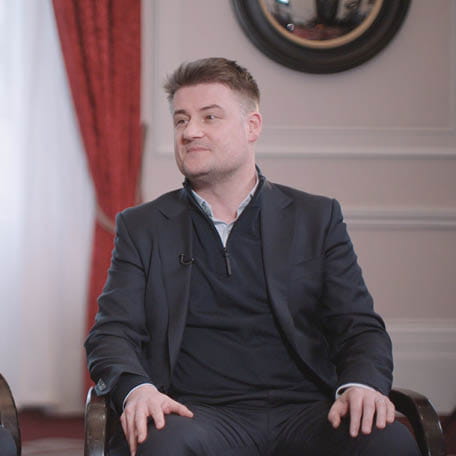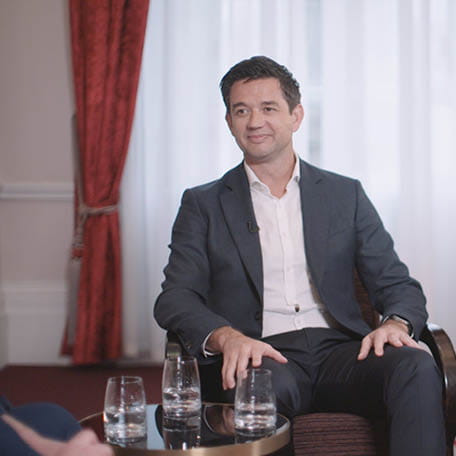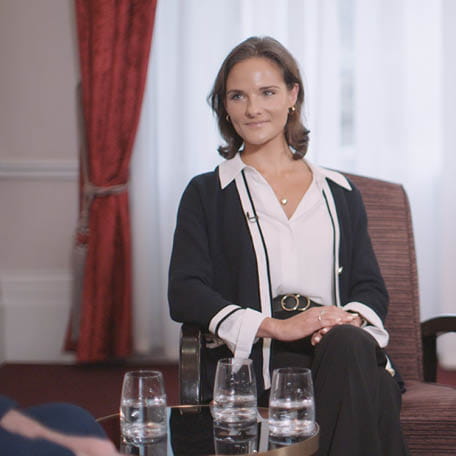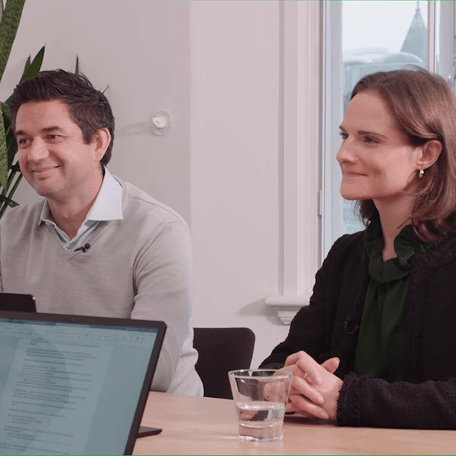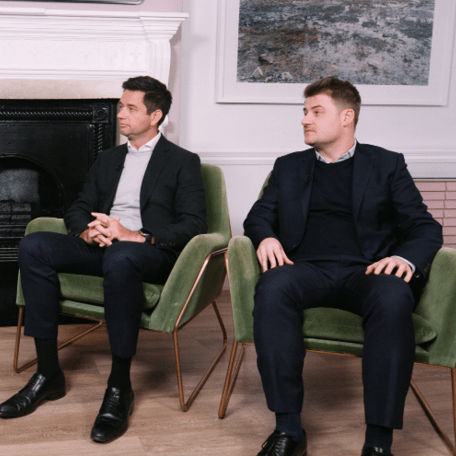Innovation can conjure up the idea of flashy tech. We believe this is a misinterpretation of the concept. What innovation really means is creating new ways to bring value to customers, whether through driving down prices or enhancing the quality of a product or service. This is what the Global Innovation team search for in our companies, which must also be able to build strong and lasting barriers to competition to capture this value for us as shareholders. These are the companies we believe have the potential to generate strong long-run returns.
The luxury goods industry shows us how innovation can manifest itself in very different ways, which is best showcased by the value creation stories of global leader LVMH and global disruptor Farfetch.
LVMH is the world’s leading luxury brand house, home to fashion powerhouses Vuitton and Dior, Tiffany & Co, luxury hotel group Belmond and Moet champagne.
In contrast, Farfetch, a more recent holding of ours, is the go-to marketplace for brands – luxury’s version of Amazon if you like. Both LVMH and Farfetch play in the $350 billon luxury playground but at opposite ends of the spectrum. LVMH’s roots stretch back to the 18th century, Farfetch was founded in 2007 and went public in 2018. LVMH’s success is defined by its exclusivity, while Farfetch’s depends on its ubiquity.
Against a turbulent market backdrop this year, we are currently seeing the greatest investment opportunities in high-quality companies (typically down around 30% year-to-date) and high growth potential companies (many down around 70%). Innovative leaders, such as LVMH, have the highest quality moats, whereas disruptive innovators like Farfetch have the most compelling growth prospects.
Brand power is the lynchpin of the luxury industry, but what is often overlooked are its necessary preconditions. Strong branding is only possible after a long period of reinforcing actions, since we as consumers ascribe a higher value to a handbag, for example, based on historical information about its label.
Few companies can replicate LVMH’s brand power that rests on centuries of heritage. Dior, the pioneer in innovative artistic collaborations for womenswear and menswear, has been the fastest growing brand in the industry over the past two years but this is the product of 20 years of investment in its reinvention. The combination of heritage plus scale erects powerful barriers − at over 2.5 times the size of its nearest competitor, LVMH dominates the luxury industry in which innovation is expensive, creating a material profit generation advantage.
But how does a company commanding 68% gross margins (reflective of its brands’ pricing power) provide value to the customer? Through a leading quality-to-price ratio. This is achieved by firstly producing the highest quality products (a Louis Vuitton suitcase goes through an extraordinary three-week ordeal of being opened and closed five times per minute, thrown, shaken and crushed to ensure it meets its quality threshold) and secondly through the experiential factor. A large body of academic research has demonstrated that the purchase of luxury goods is anything but rational, with socio-logical and even biological factors driving demand. The benefit yield for the customer is therefore partly dictated by the emotional value of products and unique experience they provide to each customer. The art of cultivating this brand experience is no easy feat – since demand derives from the need for status, the perception of brand exclusivity must be maintained. LVMH’s approach to brand equity preservation is best-in-class with its tight grip on distribution that ensures against over-proliferation.
Farfetch, in contrast, is helping those brands that do not have the resources of LVMH to reach consumers. Companies are (typically) more rational purchasers of goods and services than consumers, which means that Farfetch has to provide more of a tangible, economic benefit to the 1,400 brands and retail partners signed up to its online marketplace. With 3.5 million active customers using its platform, brands can instantly gain access to a wide audience through a well-curated alternative online sales channel, which is important since 80% of luxury sales take place in a referential, multi-brand environment where consumers can compare offerings.
At the same time, brands can leverage off Farfetch’s global distribution and fulfilment network across 50 countries, which is a lot easier than building it for themselves. In typical disruptive fashion, this drives down costs for brands. With average order values of around $600, Farfetch can command a 30% take-rate whilst providing brands with better economics than the traditional wholesale market: a win-win ecosystem that drives a sustainable competitive advantage.
During August, Farfetch announced a long-anticipated deal to acquire its main competitor YNAP – which owns the Net-a-Porter platform, among others – from luxury goods company Richemont, having out-manoeuvred it over the past few years. This deal will give Farfetch a big boost in Gross Merchandise Value (GMV) scale and put more brands on the platform, bolstering its twin barriers of scale and network effects. We view the deal as validation of Farfetch’s position as the global luxury marketplace with a compelling growth runway ahead as online penetration continues to expand in luxury.
With both LVMH and Farfetch trading at discounts to history, we see an excellent opportunity in these two innovative companies which not only dominate their respective niches within luxury but continue to create novel ways to provide customer value.
KEY RISKS
Past performance is not a guide to future performance. The value of an investment and the income generated from it can fall as well as rise and is not guaranteed. You may get back less than you originally invested.
The issue of units/shares in Liontrust Funds may be subject to an initial charge, which will have an impact on the realisable value of the investment, particularly in the short term. Investments should always be considered as long term.
Investment in funds managed by the Global Innovation (GI) team may involve foreign currencies and may be subject to fluctuations due to movements in exchange rates. The team may invest in emerging markets/soft currencies or in financial derivative instruments, both of which may have the effect of increasing volatility.
DISCLAIMER
This is a marketing communication. Before making an investment, you should read the relevant Prospectus and the Key Investor Information Document (KIID), which provide full product details including investment charges and risks. These documents can be obtained, free of charge, from www.liontrust.co.uk or direct from Liontrust. Always research your own investments. If you are not a professional investor please consult a regulated financial adviser regarding the suitability of such an investment for you and your personal circumstances.
This should not be construed as advice for investment in any product or security mentioned, an offer to buy or sell units/shares of Funds mentioned, or a solicitation to purchase securities in any company or investment product. Examples of stocks are provided for general information only to demonstrate our investment philosophy. The investment being promoted is for units in a fund, not directly in the underlying assets. It contains information and analysis that is believed to be accurate at the time of publication, but is subject to change without notice. Whilst care has been taken in compiling the content of this document, no representation or warranty, express or implied, is made by Liontrust as to its accuracy or completeness, including for external sources (which may have been used) which have not been verified. It should not be copied, forwarded, reproduced, divulged or otherwise distributed in any form whether by way of fax, email, oral or otherwise, in whole or in part without the express and prior written consent of Liontrust.







